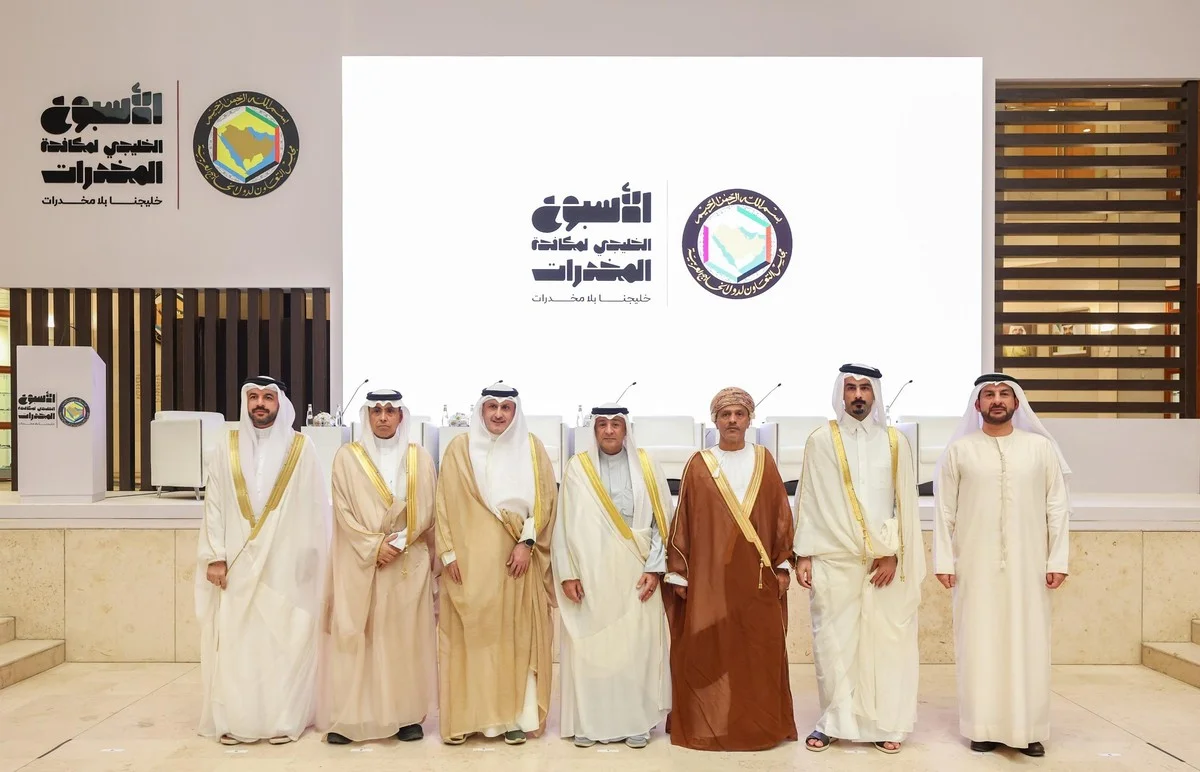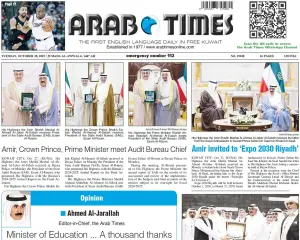26/06/2025
26/06/2025

RIYADH, June 26: Secretary General of the Gulf Cooperation Council (GCC), Jassim Al-Budaiwi, reaffirmed on Thursday the unwavering commitment of GCC member states to combating drug abuse and trafficking, emphasizing their dedication to safeguarding Gulf communities and reinforcing the safety and security of the region’s citizens.
His remarks came during a ceremony marking both the International Day Against Drug Abuse and Illicit Trafficking and the Gulf Anti-Drug Week. The event, held at the GCC General Secretariat headquarters in Riyadh, was attended by senior officials from the interior ministries and other relevant authorities of GCC countries.
Al-Budaiwi highlighted that the occasion underscores the collective resolve of the Gulf states to continue united efforts to protect societies from the dangers of narcotics, in line with directives issued by GCC leaders. These directives consider the preservation of societal security a shared national responsibility that necessitates cooperation on security, legislative, and awareness-raising fronts.
He further explained that the Gulf Anti-Drug Strategy for 2025–2028 provides a comprehensive framework to guide the region’s efforts. The strategy focuses on reducing both the supply and demand of drugs, eliminating sources of trafficking, promoting alternative development, strengthening legislation, combating money laundering, and enhancing joint monitoring and capacity-building. It aims to ensure an integrated approach encompassing prevention, treatment, and security measures.
Al-Budaiwi stressed that the fight against drugs is a shared responsibility requiring coordinated action and sustainable cooperation between governments, communities, and individuals. He noted that the GCC Secretariat is actively working to implement the strategy and support initiatives that contribute to building drug-free societies.
He underscored the pivotal role of families and communities as the first line of defense through education and sustained care. Educational institutions, religious bodies, media organizations, and civil society also play a crucial part in fostering awareness and creating a safe and healthy social environment.
Moreover, Al-Budaiwi highlighted the importance of reintegrating recovering addicts into society by providing psychological and social support. He pointed out that GCC countries have established specialized hospitals and rehabilitation centers aimed at treatment, empowerment, and breaking the stigma surrounding addiction.
In conclusion, Al-Budaiwi expressed his appreciation for the ongoing collaboration with ministries and agencies across the Gulf, including the ministries of interior, health, education, justice, and social affairs. He also acknowledged the vital roles of customs authorities, coast guards, national committees, and the United Nations Office on Drugs and Crime in the joint effort to combat drug abuse.


